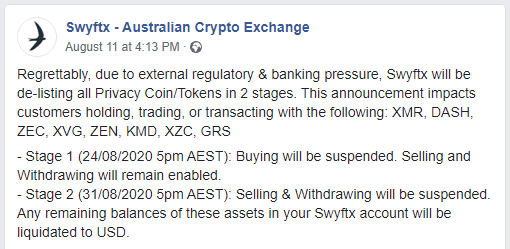Demand for digital banking solutions, contactless payment services, and cryptocurrency is rising rapidly in Australia, with cryptocurrency adoption at an all time high — accelerating the country toward a cashless future.
New “neobank” financial platforms have exploded into the Australian economic ecosystem, with platforms such as international digital bank and crypto trading app Revolut opening waiting lists and launching at full-scale throughout Australia.
The rate at which Australians are integrating cashless payment solutions into daily life is accelerating, according to eftpos CEO Stephen Benton:
“Many Australians are choosing to use eftpos when paying with their mobiles, with eftpos mobile transactions growing more than 400 percent year on year in July 2020 across all supported mobile ecosystems,”
While contactless solutions provided by card payments are currently the most popular way to pay for goods and services in Australia, services such as Apple Pay, Afterpay, Revolut, Transferwise, and other digital wallets are creating a payment ecosystem in which Australians are more likely to use digital payments than ever before.
The high speed at which Australians are taking advantage of digital payment platforms reflects the accelerated rate at which cryptocurrency usage is becoming mainstream. Australians can now purchase Bitcoin at post offices around the country, trading over $5 billion in cryptocurrency every year.
Crypto Adoption Speeds Up as Aus Gov Moves Towards Cash Ban
With the Australian legal system now recognizing cryptocurrency as a valid security for legal expenses, and homeowners now able to purchase or sell property with Bitcoin and other digital assets, cryptocurrency is quickly becoming an everyday method of value exchange —over 80 percent of the Australian population is now aware of what cryptocurrency is, with 1 in 100 Aussies paying for consumer goods with crypto.
New restrictions on the use of cash introduced in 2019 are set to limit the ways in which Australians are able to use cash, with the Australian government proposing a $10,000 limit on the amount of cash Australians are able to carry or use in a single transaction.
With cryptocurrency awareness rising and the Australian government introducing regulatory structures that limit the ways in which consumers can carry or transfer cash, cryptocurrency offers Australians a viable alternative to fiat cash currency free from the restrictions associated with digital banking platforms.











